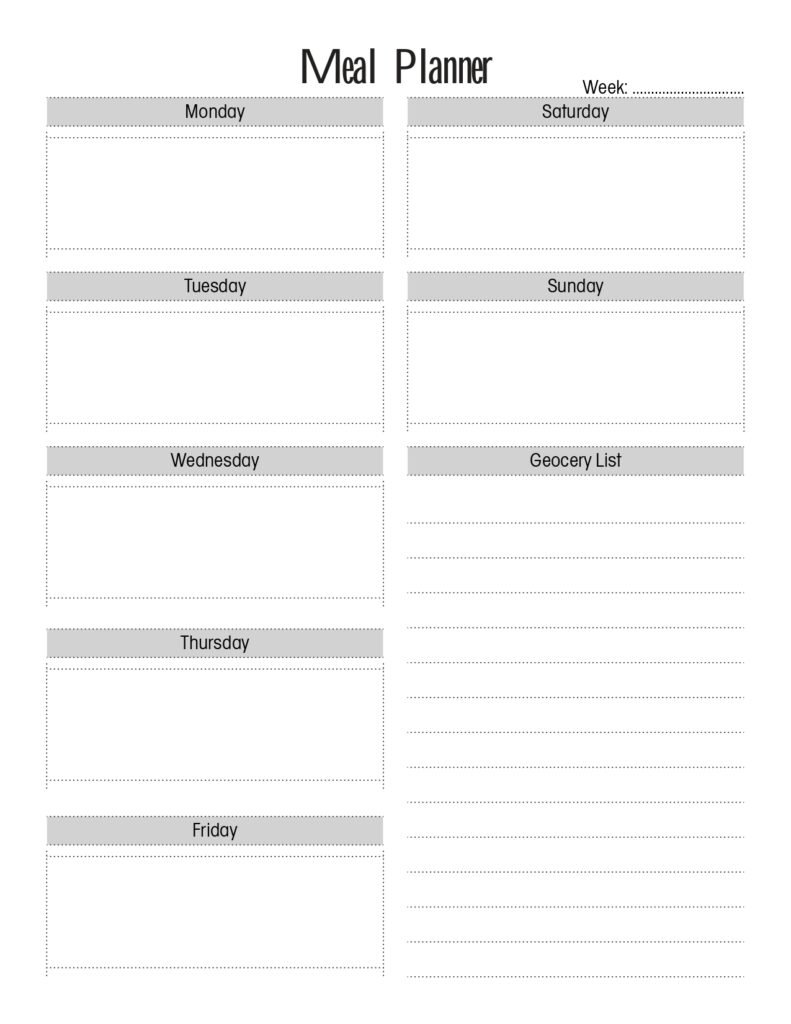Table of Contents
This post may contain Affiliate links. If you buy anything via the link, I will earn a small commission without any effect on your payment. Thank you for your support.
introduction
Pregnancy brings a mix of excitement and uncertainty, especially when it’s your first time. To help you navigate this important journey, it’s necessary to gather reliable information and practical tips that support your health and well-being. In this guide, you’ll find 10 advice for the first time pregnant women that will empower you to make informed choices and feel confident throughout your pregnancy. By following these suggestions, you can create a positive experience for both you and your baby.
Embracing Your Body’s Transformation

We Are Pregnant: Couple’s 9 months Pregnancy Experience Ebook: Buy on AMAZON
Your body undergoes remarkable changes during pregnancy, each serving a purpose to support your growing baby. From the expanding uterus to hormonal fluctuations that can affect your skin and mood, these transformations might feel overwhelming at times. Approaching these changes with curiosity rather than resistance helps you nurture both your body and your mindset. Noticing how your shape shifts, your energy fluctuates, and your senses heighten provides insight into the powerful journey you’re navigating.
Understanding Physical Changes
For the first time pregnant women, The surge of hormones like estrogen and progesterone triggers a variety of physical effects, including breast tenderness, increased blood volume, and skin changes such as the “mask of pregnancy” or linea nigra. Your uterus grows roughly from the size of a fist to a watermelon by the third trimester, causing shifts in posture and balance. Increased circulation may lead to swelling or varicose veins, while softening joints prepare your body for labor. These adjustments, while sometimes uncomfortable, are imperative for a healthy pregnancy and delivery.
Managing Discomforts with Confidence for the first time pregnant women
Common discomforts such as back pain, heartburn, and leg cramps can be eased through targeted strategies like prenatal yoga, dietary adjustments, and hydration. Wearing supportive footwear and using pregnancy pillows at night improve posture and sleep quality. Engaging in gentle stretching boosts circulation and reduces muscle tension, while small lifestyle tweaks—like eating smaller meals to decrease acid reflux—make a noticeable difference. Monitoring these symptoms and addressing them proactively empowers you to maintain comfort as your pregnancy progresses.
Diving deeper, integrating practices like pelvic tilts and prenatal swims promotes flexibility and reduces strain on the lower back, which carries much of the pregnancy weight. Using a body pillow to support your abdomen and knees during sleep aligns your spine and alleviates pressure points, improving rest. Nutritional choices such as incorporating magnesium-rich foods can help reduce leg cramps. Maintaining consistent communication with your healthcare provider about discomforts ensures any underlying issues are promptly handled, allowing you to feel more in control every step of the way.
Nutrition: Fueling New Life
Providing your body with balanced nutrition empowers both you and your developing baby. Caloric needs increase modestly during pregnancy, roughly 300 extra calories per day in the second and third trimesters, but quality always outweighs quantity. Prioritizing whole foods rich in vitamins and minerals supports healthy fetal development and helps manage pregnancy symptoms. Hydration also plays a pivotal role, so aim for at least eight glasses of water daily to maintain amniotic fluid levels and optimize circulation.
Essential Nutrients for Growth
Folate, iron, calcium, and DHA stand out as foundational nutrients. Folate, at 600 mcg daily, reduces neural tube defect risks early on. Iron supports increased blood volume, with 27 mg per day recommended to prevent anemia. Calcium of 1,000 mg ensures strong bone formation, while DHA, an omega-3 fatty acid found in fatty fish, aids brain and eye development. Incorporate leafy greens, lean meats, dairy, and fish like salmon to meet these targets effectively.
Foods to Embrace and Avoid
Welcoming a variety of colorful fruits, vegetables, whole grains, and lean proteins equips you with comprehensive nutrition. Embrace fortified cereals and legumes for fiber and folate, and snack on nuts for healthy fats. Meanwhile, steer clear of raw or undercooked seafood, unpasteurized cheeses, and deli meats due to risk of listeria. High-mercury fish like swordfish and king mackerel should also be avoided to protect your baby’s neurological health.
Diving deeper, canned tuna and salmon are safer fish options with low mercury content, allowing you to enjoy omega-3 benefits without jeopardizing safety. Washing produce thoroughly reduces exposure to pesticides and bacteria, while limiting caffeine to under 200 mg daily helps prevent potential miscarriage risks. Incorporate diverse, nutrient-dense meals to maintain energy and foster optimal fetal growth throughout your pregnancy journey.
The Emotional Rollercoaster: Mental Health Matters

As the first time pregnant women, your emotions may swing wildly from joy to frustration, often without warning. Hormonal fluctuations heighten sensitivity, triggering feelings that might seem overwhelming or confusing. Tracking these mood shifts equips you to manage them more effectively, while understanding that anxiety and occasional sadness are common experiences rather than signs of weakness. Navigating this emotional rollercoaster becomes easier as you learn which coping mechanisms work best for your unique experience during pregnancy.
Recognizing Mood Swings and Anxiety in the first time pregnant women life
Notice how even minor stressors can lead to intense mood swings or bouts of anxiety during pregnancy. Physical discomfort and sleep disturbances often amplify these feelings. Anxiety might show up as persistent worry about your baby’s health or fear of labor. Keeping a journal of your mood patterns and triggers provides clarity and helps differentiate between normal fluctuations and symptoms that may need attention from a mental health professional.
Seeking Support: Family, Friends, and Professionals
Leaning on close family and friends offers emotional relief and practical help when you feel overwhelmed. Communicating openly about your struggles builds understanding and stronger connections. For the first time pregnant women, Professional support—from therapists specializing in perinatal mental health to prenatal support groups—can provide tailored strategies, especially if anxiety or depression become more intense or persistent.
Connecting with professionals trained in perinatal care creates a safe space to explore your feelings without judgment. Services like cognitive-behavioral therapy (CBT) have proven effective in reducing pregnancy-related anxiety, with studies revealing a 60% improvement rate in women who engaged in such interventions. Online support groups also offer accessible communities that validate your experience and share coping techniques. Cultivating a support network that includes both personal and professional resources prepares you to handle emotional challenges more confidently throughout pregnancy.
Navigating Healthcare: Advocate for Yourself
You hold a vital role in your prenatal care by actively communicating your needs and concerns to your healthcare team. Asking detailed questions about test results, medications, or symptoms sharpens your understanding and helps ensure your care aligns with your preferences. Tracking appointments, writing down observations, and discussing any discomfort openly empowers you to stay informed and involved throughout every stage of pregnancy.
Finding the Right Healthcare Provider
Choosing someone who listens attentively and respects your values can make all the difference in your pregnancy experience. Seek providers—obstetricians, midwives, or family doctors—who offer personalized care and clear explanations. Online reviews, recommendations from friends, and initial consultations offer good insight into bedside manner and approach to labor, helping you feel confident in your selection.
Understanding Your Birth Plan Options
Exploring birth plan choices allows you to outline preferences on pain management, labor positions, interventions, and who will be present. Knowing options from natural birth to epidurals or cesarean delivery prepares you for discussions with your care team. Tailoring a plan turns abstract ideas into actionable requests, fostering a sense of control on delivery day.
Each birth plan option has trade-offs based on your health and birthing environment. For instance, water births offer soothing comfort but require specific facilities, while planned cesareans reduce labor unpredictability but entail longer recovery. Familiarity with hospital policies on visitors, mobility during labor, and fetal monitoring techniques further refines the plan. For the first time pregnant women, Incorporating backup choices accommodates unforeseen changes, ensuring your wishes remain central even if circumstances shift.
Pregnant Women Essentials : Buy on AMAZON
Building a Support System

As first time pregnant women, Surrounding yourself with a reliable support system can make a huge difference as you navigate pregnancy’s many changes. Combining emotional encouragement with practical help, your network plays a key role during challenging moments and celebrations alike. Whether it’s sharing daily experiences or offering assistance with appointments and errands, leaning on others lightens the load and enriches your experience. Trust develops as you communicate openly, allowing you to feel understood and less isolated throughout this journey.
Communicating with Your Partner
Your partner often becomes the closest ally in this time of transition. Expressing feelings honestly—from excitement to anxieties—helps both of you stay aligned and strengthens your bond. Scheduling regular check-ins, discussing hopes and concerns, or even sharing articles about pregnancy can create opportunities for deeper understanding. Small gestures like attending prenatal classes together or preparing for the baby’s arrival also cultivate teamwork and resilience.
Engaging Family and Friends
Family and friends offer varied forms of support that can complement your partner’s involvement. Inviting them to prenatal appointments or sharing milestones fosters a sense of inclusion and often results in practical aid, like meal deliveries or childcare offers. Their previous experiences with pregnancy bring valuable advice and encouragement for the first time pregnant women,, enriching your perspective and alleviating uncertainty.
Diving deeper into engaging your circle, actively involving family and friends transforms passive interest into meaningful participation. Organizing a baby shower or creating a group chat dedicated to pregnancy updates stimulates ongoing connection. If close relatives live far away, virtual gatherings can still nurture those bonds. Balancing privacy with openness lets you set boundaries that maintain comfort while benefiting from their care and shared wisdom.
Preparing for Parenthood: Practical Steps
Pregnant Women Essentials : Buy on AMAZON
As first time pregnant women, You’ll find that getting ready for your new arrival involves more than just emotional preparation—it blends practical planning with informed decision-making. Organizing your finances to accommodate medical bills and baby supplies, prioritizing necessary gear, and adapting your living space creates a foundation that supports your growing family. Focusing on manageable tasks, such as setting up a budget or decluttering rooms, allows you to take steady steps toward readiness without feeling overwhelmed. Each action you take now smooths the transition once your baby comes home.
Baby Gear Essentials & Financial Planning
Choosing necessarys like a reliable crib, convertible car seat, and simple clothing basics can prevent overspending on unnecessary items. Comparing prices through apps, joining local parenting groups for hand-me-downs, and creating a detailed budget that covers prenatal care, delivery costs, and baby necessities help maintain your finances. Planning for unexpected expenses by setting aside even a small emergency fund can make all the difference during those unpredictable first months.
Creating a Safe Environment
Transforming your home into a secure haven means assessing every room for potential hazards such as loose cords, unstable furniture, and accessible chemicals. Installing outlet covers, securing heavy objects to walls, and selecting non-toxic cleaning supplies prevent accidents. You might consider a baby monitor with video capabilities to keep an eye on your little one remotely, while maintaining smoke and carbon monoxide detectors ensures comprehensive safety.
Diving deeper, safety extends beyond immediate baby-proofing. Pay attention to lighting in hallways and staircases to avoid slips during late-night feedings. Evaluate flooring for non-slip rugs, and check window locks to prevent falls. Having a first aid kit stocked with baby-specific supplies, like infant thermometers and saline drops, prepares you for minor emergencies. By addressing environmental risks proactively, you create a space that supports both your peace of mind and your child’s well-being as they begin to explore.
THE ESSENTIAL PREGNANCY PLANNER: A PERFECT TRACKER FOR 40 WEEKS OF PREGNANCY: Buy on AMAZON
Staying Informed: Knowledge is Power

Keeping yourself informed throughout your pregnancy helps you make confident decisions and anticipate changes. Tracking prenatal milestones, understanding common symptoms, and knowing when to consult your healthcare provider can reduce anxiety. You might track fetal development week-by-week using apps like Ovia or BabyCenter, which offer tailored advice and reminders. Additionally, staying updated on the latest health guidelines, nutrition tips, and available prenatal tests ensures you are prepared for each stage of pregnancy.
Recommended Reading and Resources for the first time pregnant women,
Books like “What to Expect When You’re Expecting” by Heidi Murkoff provide comprehensive insights that many first time pregnant women, find comforting. Websites such as March of Dimes and the Mayo Clinic offer fact-checked, pregnancy-specific information on everything from nutrition to warning signs of complications. Using reputable sources helps you filter out misinformation and equips you with actionable knowledge catered to your trimester and personal health.
Joining Online Communities and Local Groups
Engaging with online forums like BabyCenter’s community or local prenatal groups connects you to others experiencing similar journeys. These spaces let you ask questions, share concerns, and receive firsthand tips, fostering a sense of support and belonging. Virtual groups often provide access to experts through Q&A sessions or live webinars, expanding your understanding beyond clinical advice.
Diving deeper, participating in local prenatal groups or mom-and-baby classes not only introduces you to peers but can also offer practical demonstrations on newborn care, breastfeeding, and childbirth preparation. Some communities organize meetups, providing in-person emotional support and the chance to exchange resources like babysitting referrals or pediatrician recommendations. Balancing online engagement with face-to-face interaction broadens your support network, making the pregnancy experience less isolating and more empowering.
THE ESSENTIAL PREGNANCY PLANNER: A PERFECT TRACKER FOR 40 WEEKS OF PREGNANCY: Buy on AMAZON
To wrap up
Drawing together the 10 advice for first time pregnant women, you should focus on nourishing your body, staying active, and attending all prenatal appointments. Listening to your body and asking questions helps you feel confident throughout your pregnancy journey. Surrounding yourself with a supportive network and practicing self-care will ease challenges along the way. By embracing these guidelines, you create a positive foundation for both your health and your baby’s development, preparing yourself for the exciting months ahead with knowledge and assurance.
FAQs
1. Q: Why is prenatal care critical for the first time pregnant women?
A: Prenatal visits monitor fetal development and maternal health, catching potential issues early. The first time pregnant women should schedule their first appointment by 8 weeks to establish a care plan, receive essential vitamins (like folic acid), and discuss lifestyle adjustments. Skipping appointments risks missing vital health screenings.
2. Q: How can the first time pregnant women manage morning sickness effectively?
A: The first time pregnant women can ease nausea by:
- Eating small, frequent meals (e.g., crackers, ginger tea).
- Avoiding triggers (strong smells, spicy/fatty foods).
- Taking vitamin B6 supplements (with doctor approval).
If vomiting is severe, consult a healthcare provider to prevent dehydration.
3. Q: What exercises are safe for the first time pregnant women?
A: Low-impact activities like walking, swimming, prenatal yoga, or stationary cycling are ideal. The first time pregnant women should avoid contact sports, heavy lifting, or hot yoga. Aim for 30 minutes daily but consult your OB-GYN first—especially if high-risk.
4. Q: Why is nutrition especially important for the first time pregnant women?
A: Proper nutrition supports fetal growth and reduces complications. The first time pregnant women need:
- Extra iron (spinach, lean meat) to prevent anemia.
- Calcium (dairy, leafy greens) for bone development.
- Hydration (8–10 glasses of water daily).
Limit caffeine, avoid raw fish/undercooked meat, and prioritize whole foods.
5. Q: How can the first time pregnant women reduce anxiety about childbirth?
A: The first time pregnant women can:
- Attend prenatal classes to understand labor stages.
- Create a birth plan with their healthcare team.
- Practice relaxation techniques (deep breathing, meditation).
Connecting with support groups or other first time pregnant women also eases isolation fears.
Note: Always consult a healthcare provider for personalized advice. Every pregnancy is unique.

